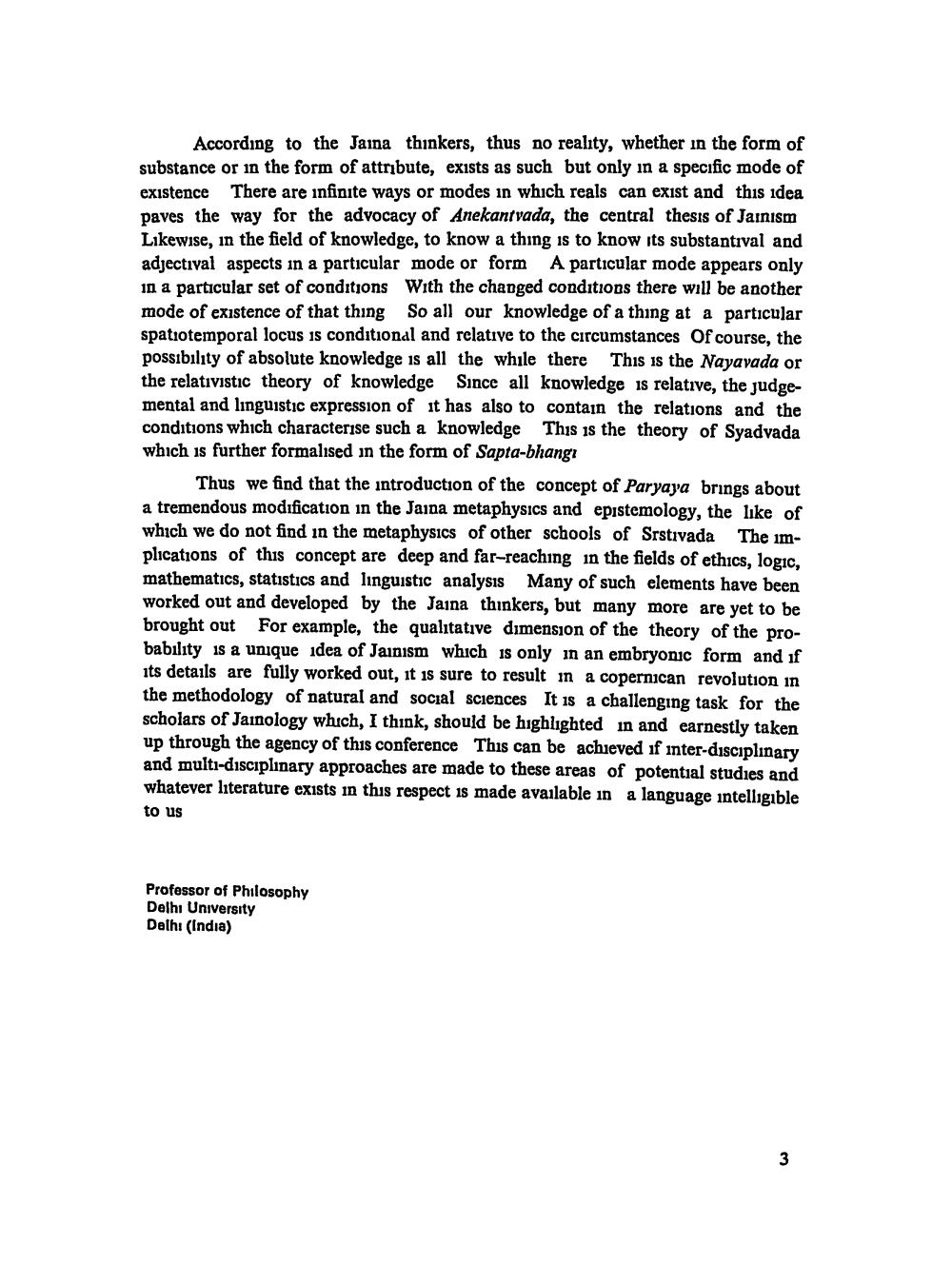________________
According to the Jaina thinkers, thus no reality, whether in the form of substance or in the form of attribute, exists as such but only in a specific mode of existence There are infinite ways or modes in which reals can exist and this idea paves the way for the advocacy of Anekantvada, the central thesis of Jainism Likewise, in the field of knowledge, to know a thing is to know its substantival and adjectival aspects in a particular mode or form A particular mode appears only in a particular set of conditions With the changed conditions there will be another mode of existence of that thing So all our knowledge of a thing at a particular spatiotemporal locus is conditional and relative to the circumstances Of course, the possibility of absolute knowledge is all the while there This is the Nayavada or the relativistic theory of knowledge Since all knowledge is relative, the judgemental and linguistic expression of it has also to contain the relations and the conditions which characterise such a knowledge This is the theory of Syadvada which is further formalised in the form of Sapta-bhangi
Thus we find that the introduction of the concept of Paryaya brings about a tremendous modification in the Jaina metaphysics and epistemology, the like of which we do not find in the metaphysics of other schools of Srstivada The implications of this concept are deep and far-reaching in the fields of ethics, logic, mathematics, statistics and linguistic analysis Many of such elements have been worked out and developed by the Jaina thinkers, but many more are yet to be brought out For example, the qualitative dimension of the theory of the probability is a unique idea of Jainism which is only in an embryonic form and if its details are fully worked out, it is sure to result in a copernican revolution in the methodology of natural and social sciences It is a challenging task for the scholars of Jainology which, I think, should be highlighted in and earnestly taken up through the agency of this conference This can be achieved if inter-disciplinary and multi-disciplinary approaches are made to these areas of potential studies and whatever literature exists in this respect is made available in a language intelligible to us
Professor of Philosophy Delhi University Delhi (India)




